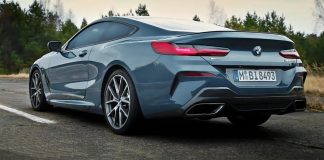Here’s the latest reader question, along with my reply!
DeMar asks: I’m not really a survivalist, but if I were, what would be the best truck(s) to consider for someone living out away from convenient dealer service and without a lot of money to spend? I’ll be living in a snowy environment and I’ll have to maintain the vehicle as much as possible on my own. Computer controlled everything is not an option. I want a basic machine for transportation that I can depend on. I don’t know why I’d need more than a half ton capacity, but I’m open to all suggestions. Under $15,000 in the upper plains, western mountain states is my budget. Less is always better.
My reply: This is an easy one! Any truck made before 1980 will have no computer controls of any kind, basic mechanical systems (including the 4WD system) that are owner-serviceable with basic hand tools and mechanical aptitude. You budget will easily enable you to buy an excellent condition example in either restored or top-drawer original condition. Your decision will then come down to brand and size preference. Do you want a Chevy? Or a Dodge? Or a Ford?
You might also want to consider some of the smaller stuff made during the same era, including models like the Chevy Luv diesel. This is a compact truck, without much power – but its mechanically injected diesel is almost maintenance-free and will burn almost any fuel, including of course home-brew diesel.
I’d also – if I were looking – give some thought to a mid-late ’80s or ’90s-era truck with simple computer controls. For example, a Chevy 1500 with a TBI-injected 305 or 350 small block and a five-speed manual transmission. The TBI system is simpler than a four barrel and they almost never require anything except occasional cleaning. The 305/350 is a Chevy small block – need I say more? And having the overdrive will really improve the truck’s mileage and highway legs. These trucks will not have any – or many – air bags (depending on the year) and no other nanny controls. The 4WD will be manual (grab lever) not automatic/electric.
I need to get one of these myself!
. . .
Got a question about cars, Libertarian politics – or anything else? Click on the “ask Eric” link and send ’em in!
If you like what you’ve found here please consider supporting EPautos.
We depend on you to keep the wheels turning!
Our donate button is here.
If you prefer not to use PayPal, our mailing address is:
EPautos
721 Hummingbird Lane SE
Copper Hill, VA 24079
PS: Get an EPautos magnet (pictured below) in return for a $20 or more one-time donation or a $10 or more monthly recurring donation. (Please be sure to tell us you want a sticker – and also, provide an address, so we know where to mail the thing!)
My latest eBook is also available for your favorite price – free! Click here. 












Hey Eric, honest opinion on IH scouts, I see they’re rather affordable (for now) and as I didn’t grow up then, didn’t really learn about them until real recently
Hi Zane,
They’re rough, crude and simple and easy to keep going! This appeals to me – but your mileage may vary. Remember: I like carburetors!
Scouts were really popular at one time. I never quite appreciated them as they didn’t appear all that off road capable. Might as get one of the high ground clearance full size pickups that they made back then. The original 4 cylinder couldn’t keep up with highway speeds at least on hills.
As I recall, the 2nd generation rusted really badly. There are probably more 1st generation survivors.
I’ve been window-shopping for similar era trucks, mostly International Harvesters and Jeep J10s/J20s. One thing I’ve noticed is that a lot of the International Harvester pickup trucks had dual fuel tanks. Given the low-teens MPG on these trucks, having this would be very desirable. And even if it didn’t come with an auxiliary fuel tank, adding one to a truck that commonly had one is much easier than adding one to a truck that rarely had one.
Of course, finding IH parts at your local Autozone can be a bit more of a challenge, given they stopped making pickups in ’75.
Finding the right IH part was a challenge even back when they were still making them.